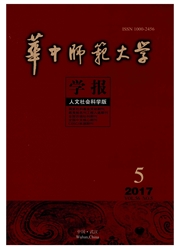

 中文摘要:
中文摘要:
佛教所用的"语言"是广义的,主要有两种,一是口头语言,即言说,二是书面语言,即"名"。佛教对语言本质的分析侧重于对名的分析。佛教认为,名也有种种不同的行相,即有不同的活动、作用方式,有不同的表现形式,之所以如此,既与安立名称的人有关,又与相有不同样式、"势力"有关。佛教探讨语言本质及其与所指关系的目的在于:破众生的"名言系缚",让其由此得清净解脱。在名的本质以及与实在的关系问题上,佛教发起了名副其实的"哥白尼式转变"。因此,佛教语言哲学既有世俗一般语言哲学的动机和维度,如也想回答关于语言的一系列本体论、认识论等问题,更重要和特殊的地方在于:它同时有解脱论或人生哲学的动机和维度,因为它试图通过对语言的探讨,揭示众生离苦得乐、去凡成圣的原理、出路和途径。
 英文摘要:
英文摘要:
Philosophy of language in Buddhism has been not only widely accepted in China and abroad,but also thoroughly researched with promising results.However,there is no consensus on its content and features.In order to reconstruct philosophy of language in Buddhism,firstly,accurate and precise understanding of philosophy of language is needed;secondly,a full picture of Buddhist text in reflection of philosophy of language and the practical and in-depth reading of it are also required.Philosophy of language in Buddhism embodies the motivation and perspectives of the general philosophy of language,for example,it also wants to answer a series of problems on linguistics such as ontology,epistemology and language view.Specially and importantly,it displays the motive and perspective of both the theory of extrication and philosophy of life,for it endeavors to reveal the principle,path and way out for all living creatures to be free from sufferings and become saints through its discussion of language.
 同期刊论文项目
同期刊论文项目
 同项目期刊论文
同项目期刊论文
 期刊信息
期刊信息
